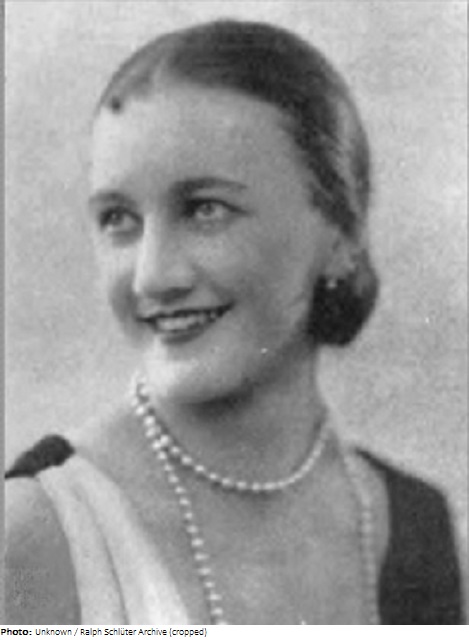Klára Marik

Biographical information
| Roles | Competed in Olympic Games |
|---|---|
| Sex | Female |
| Full name | Klára Ilona Edit•Marik (-Tasnádi) |
| Used name | Klára•Marik |
| Nick/petnames | Klári |
| Other names | Klára Tasnádiné Marik; Tasnádi Endréné |
| Born | 18 March 1903 in Budapest, Budapest (HUN) |
| Died | 25 January 2005 in Budapest, Budapest (HUN) |
| NOC |  Hungary Hungary |
Biography
Hungarian author Klára Marik died at the age 101. She graduated in 1928 from the Hungarian Royal College as one of the first female physical education teachers, and became a protagonist for women in sport. She was employed by the sports department of the Ministry of Religion and Public Education. Then she studied at the Budapest University and in England, where she became an art historian at the Museum of Applied Arts, focusing on glass art. In 1988, she launched the prestigious “Pro Arte Vitraria” award for glass art.
In 1936, she entered the literature competition with a collection of seven poems called A lassitó lencsén Keresztül (Through slow motion). During the Berlin Olympics, she was a member of the official Hungarian delegation, and coached high jump gold medalist Ibolya Csák. She spent her final years almost motionless in a Budapest hospital, where she met with Csák for the first time since 1936. At the time of her death she was the oldest living Hungarian Olympian.
Results
| Games | Discipline (Sport) / Event | NOC / Team | Pos | Medal | As | |
|---|---|---|---|---|---|---|
| 1936 Summer Olympics | Art Competitions |  HUN HUN |
Klára Marik | |||
| Literature, Lyric Works, Open (Olympic) |
Special Notes
- Listed in Olympians Who Reached the Age of 100 ()